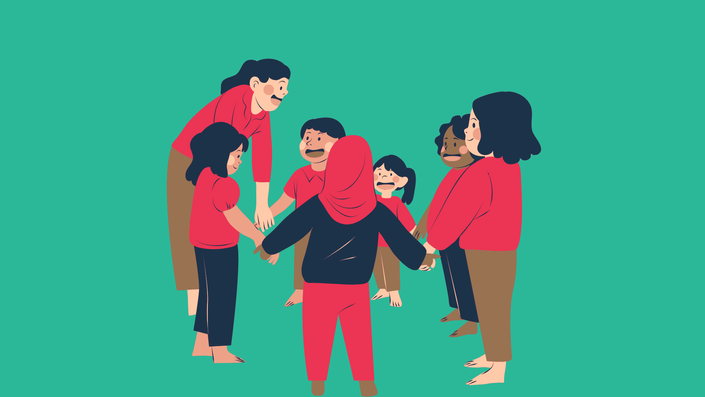
5. “All Work & No Play”: The Psychology & Benefits of Play & Humour in School - 2025
How play and humour can enhance learning and wellbeing in the classroom
Children have a natural tendency towards playfulness, as do many adults. Learning can be enhanced when it's achieved through the medium of humour and play. The aim of this course is to use the Actualise Academy Model of Neuroscience, Clinical/Emotional Psychology and Behavioural Science to introduce teachers to the cognitive, emotional and behavioural factors that can contribute to maximising the learning experience of school, focussing specifically on how play, humour and creativity can play important roles.
Topics covered include the developmental stages of play, cognitive benefits of play, social benefits of play, and how you as an educator can be playful.
Our comprehensive lesson plans and resources provide you and your learners with the skills to overcome challenges and thrive both at home and in school. The aim of this course is to use the Actualise Academy Model of Neuroscience, Clinical/Emotional Psychology and Behavioural Science to introduce Teachers to the various mechanisms and actions that can help use humour and play appropriately to enhance learning in the classroom.
LEARNING OUTCOMES:
Here is a list of the modules in this course, with the learning outcomes of each. We also build in School Self Evaluation into all courses, making the SSE Process as smooth as possible:
Module 1: The Developmental Stages of Play. Participants will learn:
- The developmental stages of play
- Examples of how this can be seen in the classroom
- Play throughout the different age groups
- Individual vs group play
- Rule-governed behaviour
Module 2: The Cognitive Benefits of Play. Participants will learn:
- How our brain is optimised for learning when we are having fun
- The areas of the brain that are activated and the implications for teaching
- How play changes depending upon the neurodevelopmental stage of the child
Module 3: Play: Winning & Losing. Participants will learn:
- The social benefits of play, both structured and un-structured
- Methods for teaching coping strategies to students who get upset when losing
- School-wide strategies for ensuring inclusion & positive play
Module 4: Social Benefits of Play. Participants learn:
- The social skills that can be taught when playing
- The importance of play to develop student’s emotional and communication skills
- Lesson Plans for teaching critical social and communication skills during play
Module 5: The Playful Educator. Participants will learn:
- Learn the skills of improvisation in developing social skills
Incorporate improv strategies to build listening skills
Additional Resources Available With This Course: Additional resources include sharing lesson plans, winning and losing lesson plans, podcasts, selected TED talks, jigsaw classroom resources and plans, information sheets and more.
"Thank you for such an informative course. I enjoyed listening to the lecturers while watching the slides visually and also appreciated being able to skip back and forward to review. Very applicable content"
- Ms. Angela Power
Your Instructor
Pádraig Walsh BA, MSc, BCBA, A.F.Ps.S.I. is Actualise Academy's Behaviour Psychologist. He is intrigued by people, their behaviour and his expertise lies in helping people to understand why we do what we do. His range of knowledge and experience is diverse, working with both children and adults across educational, clinical and residential settings. He is a regular contributor on RTÉ Radio and as Behavioural Psychologist for The 6 O'Clock Show on Virgin Media 1.
Pádraig qualified with a Masters in Applied Behaviour Analysis after completing his degree in Psychology (both at NUI Galway). He has worked as a Behaviour Specialist for organisations across Ireland as well as working for 2 years in Melbourne, Australia as a consultant to an early intervention clinic for children. Pádraig has presented his research extensively at conferences on the effectiveness of Positive Behaviour Support in Ireland, Australia, Singapore and the UK. He is part of the MSc (ABA) interview panel at NUI Galway and also lectures on the MSc in Applied Behaviour Analysis in NUI Galway and Trinity College, Dublin as well as on the Doctorate in Clinical Psychology in the University of Limerick.
Pádraig is the founder of the podcast series All About Dis' exploring disability issues in Ireland today. You can find the episodes on iTunes and on Soundcloud. Having spent most of his early life playing GAA in his native Westmeath, Pádraig has more recently discovered his artistic side performing at the Edinburgh Fringe Festival with his Improv group Kirsty.